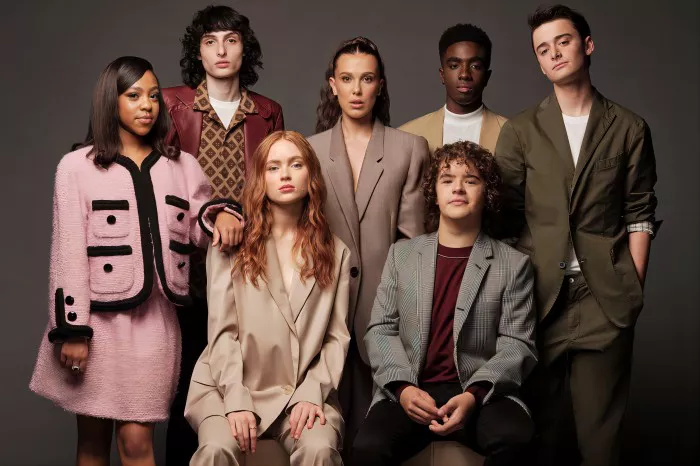UExploring the Polarizing Aspects of “Stranger Things”
“Stranger Things” has garnered widespread acclaim for its nostalgic homage to 1980s pop culture, its compelling characters, and its captivating storyline. However, like any popular cultural phenomenon, the series has also sparked its fair share of controversies and debates among viewers and critics alike. From its portrayal of sensitive themes to its handling of character arcs and storylines, “Stranger Things” has faced criticism and scrutiny on various fronts. In this exploration, we’ll delve into some of the key controversies surrounding the series and examine the perspectives and arguments from both sides of the debate.
1. Representation and Diversity
One of the most significant controversies surrounding “Stranger Things” revolves around its representation of diverse characters and communities. Critics have pointed out the lack of racial diversity among the main cast, which primarily consists of white characters, with few prominent characters of color. Additionally, some have raised concerns about the portrayal of stereotypical tropes and clichés, particularly in the depiction of characters from marginalized backgrounds. While the series has made efforts to introduce more diverse characters in later seasons, the issue of representation remains a point of contention for many viewers.
2. Treatment of Female Characters
Another area of controversy within “Stranger Things” is its treatment of female characters and their storylines. While the series features strong and independent female characters such as Eleven and Joyce Byers, some critics have criticized the show for sidelining these characters in favor of their male counterparts. Additionally, the portrayal of female characters as love interests or damsels in distress has drawn scrutiny, with some arguing that the series perpetuates outdated gender stereotypes. However, others have praised the complexity and agency afforded to certain female characters, highlighting their resilience and resourcefulness in the face of adversity.
3. Depiction of Violence and Trauma
“Stranger Things” has been lauded for its suspenseful storytelling and thrilling action sequences, but it has also faced criticism for its depiction of violence and trauma, particularly involving child characters. The series does not shy away from portraying graphic and disturbing scenes, including instances of supernatural horror, physical violence, and psychological trauma. Some viewers have raised concerns about the impact of these scenes on younger audiences and the potential desensitization to violence that may result from prolonged exposure. However, others argue that the depiction of violence is essential to the show’s narrative and thematic exploration of the darker aspects of human nature.
4. Appropriation of Culture and Genre Tropes
As a series deeply rooted in nostalgia for 1980s pop culture, “Stranger Things” has been accused of appropriating elements of other cultures and genres without adequately acknowledging or respecting their origins. Critics have pointed out instances of cultural appropriation, such as the use of Asian-inspired imagery and themes in the portrayal of Eleven’s character and the incorporation of Native American folklore and symbolism in certain storylines. Additionally, the series has been accused of relying too heavily on tropes and clichés from the science fiction and horror genres, leading to accusations of unoriginality and lack of originality.
5. Treatment of LGBTQ+ Characters
“Stranger Things” has faced scrutiny for its handling of LGBTQ+ representation, with some viewers expressing disappointment at the lack of overtly queer characters and storylines in the series. While certain characters, such as Robin Buckley, have been revealed to be LGBTQ+ in later seasons, others have criticized the show for queerbaiting – teasing the possibility of LGBTQ+ representation without following through with meaningful depictions or exploration of queer identities. The absence of explicit LGBTQ+ representation has led to calls for greater inclusivity and diversity in future seasons of the series.
Conclusion
In conclusion, “Stranger Things” is a series that has sparked a range of controversies and debates surrounding its portrayal of sensitive themes, treatment of diverse characters, depiction of violence and trauma, appropriation of culture and genre tropes, and representation of LGBTQ+ identities. While the show has garnered widespread acclaim for its nostalgic homage to 1980s pop culture and its compelling storyline, it has also faced criticism and scrutiny for its handling of these complex issues. As the series continues to evolve and expand its narrative in future seasons, it will be important for creators and audiences alike to engage in thoughtful dialogue and reflection on these controversial topics, with the goal of promoting greater understanding, empathy, and inclusivity in the stories we tell and consume.
Related Topics:
What Is the Main Concept of “Stranger Things”?
Stranger Things Season 2: A Descent into Darkness
Enigmatic World of “Stranger Things” Season 2

